From California Motocross Kid to PGA Tour Champion
Few professional golfers embody resilience, style, and perseverance quite like Rickie Fowler. Known for his signature orange attire, laid-back California persona, and unwavering determination, Fowler has captivated golf fans worldwide throughout his remarkable career. From his days as the world's top-ranked amateur to his dramatic comeback victories on the PGA Tour, Fowler's journey represents the modern professional athlete's path—filled with early success, unexpected challenges, and triumphant returns to form. His story resonates particularly with young athletes who see in him a relatable figure who transformed natural talent through dedication, overcame setbacks through perseverance, and maintained humility through both victories and struggles.
This comprehensive guide explores the complete story of Rickie Fowler’s golf career—from his early life in Southern California through his amateur dominance, professional breakthrough, historic major championship performances, challenging slumps, and emotional comebacks. We’ll examine the defining moments that shaped his career, the characteristics that made him one of golf’s most popular figures, and how his journey illustrates the dedication required to compete at golf’s highest levels. We’ll also explore how schools and athletic programs use modern recognition systems to honor professional athletes who emerged from their programs, inspiring current students with tangible examples of achievable athletic excellence.
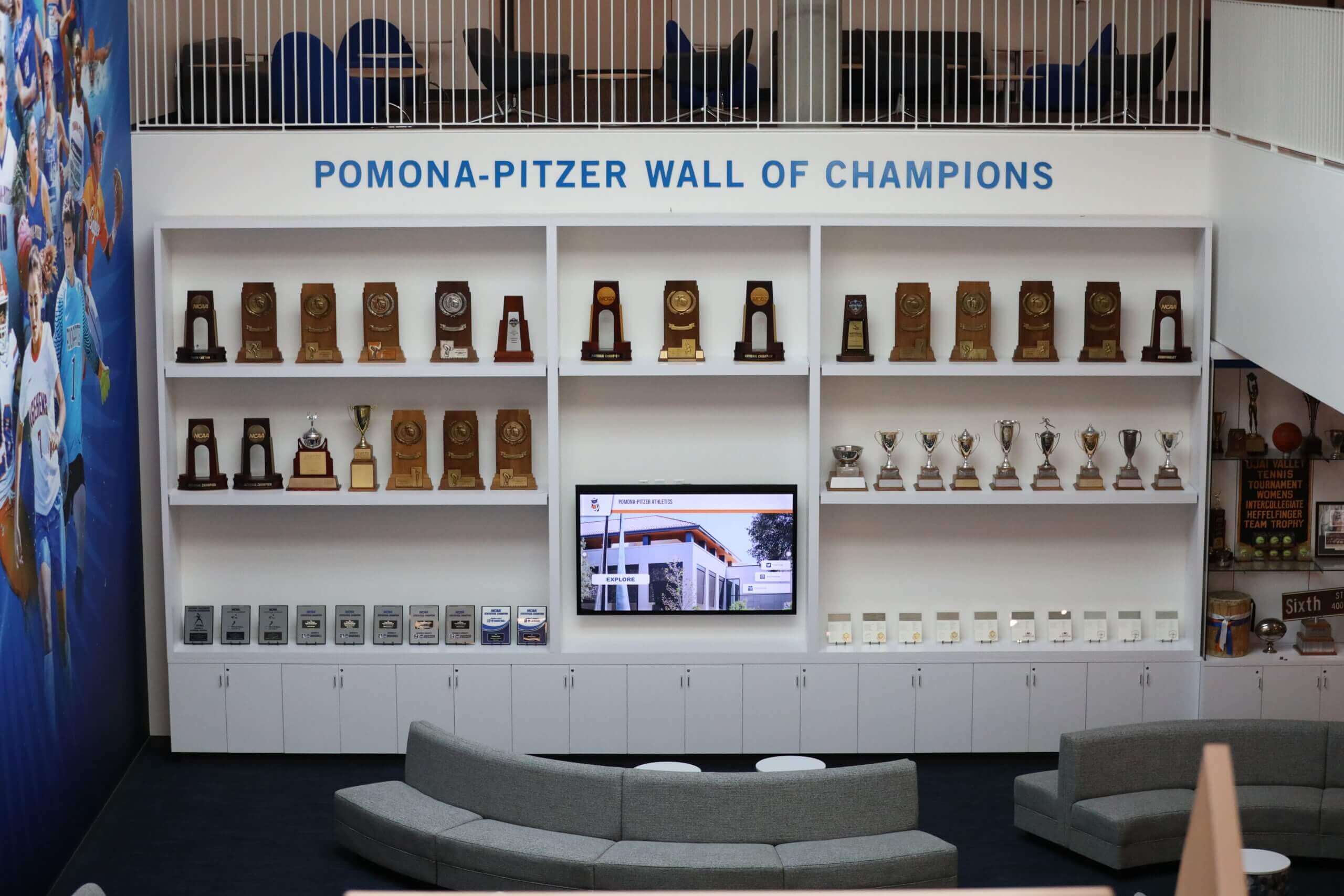
Modern athletic facilities honor championship achievements and professional athletes who inspire current competitors
Early Life: A California Kid’s Introduction to Golf
Rick Yutaka Fowler was born on December 13, 1988, in Murrieta, California, a growing city in Riverside County about 90 miles north of San Diego and 60 miles southeast of Los Angeles. His middle name, Yutaka, honors his maternal grandfather, who is Japanese—a heritage that Fowler embraces and that has made him popular among Asian golf fans worldwide.
Family Background and Athletic Heritage
Fowler grew up in an athletic family where sports, competition, and outdoor activities shaped daily life. His father, Rod Fowler, had competed professionally in off-road racing and won the prestigious Baja 1000 in 1986 racing for a Yamaha team. This racing background influenced young Rickie profoundly, initially directing his athletic interests toward motocross rather than traditional stick-and-ball sports.
His mother, Lynn Fowler, supported his athletic pursuits while ensuring he maintained balance between competition and education. This family foundation—combining competitive drive with grounded values—would serve Fowler well throughout his professional career’s inevitable ups and downs.
First Swings: Introduction to Golf at Age Three
When Rickie was just three years old, his Japanese grandfather, Taka Tanaka, handed him his first golf club at a driving range. While many children receive similar introductions to golf, most don’t develop the immediate fascination that Fowler displayed. He began spending hours at the driving range, teaching himself to hit balls and developing an intuitive feel for the golf swing long before receiving formal instruction.
During these formative years, Fowler played only on driving ranges rather than actual golf courses. This unconventional development path—hitting hundreds of balls on flat ranges rather than navigating the strategic challenges of golf courses—helped him develop exceptional ball-striking fundamentals and creativity with different shot shapes that would later become hallmarks of his professional game.
The Motocross Years: First Love on Two Wheels
Despite his early introduction to golf, Fowler’s primary athletic passion through his childhood and early teenage years was motocross. Following in his father’s footsteps, Rickie competed seriously in dirt bike racing, developing the physical courage, competitive intensity, and risk-management skills that characterize successful racers.
Motocross racing requires split-second decision-making, physical toughness, and the ability to perform under pressure—attributes that translate surprisingly well to competitive golf. The sport also taught young Fowler to embrace speed, manage fear, and maintain focus during high-stakes competition, skills that would later help him navigate pressure situations on golf’s biggest stages.
However, this first love came to an abrupt end during the summer before his freshman year of high school. A serious motocross accident resulted in multiple broken bones in his foot, forcing a lengthy recovery period and prompting serious family discussions about continuing in such a dangerous sport. The accident proved to be a pivotal moment—with his family’s support, Fowler decided to shift his competitive focus entirely to golf, a decision that would change his life’s trajectory.
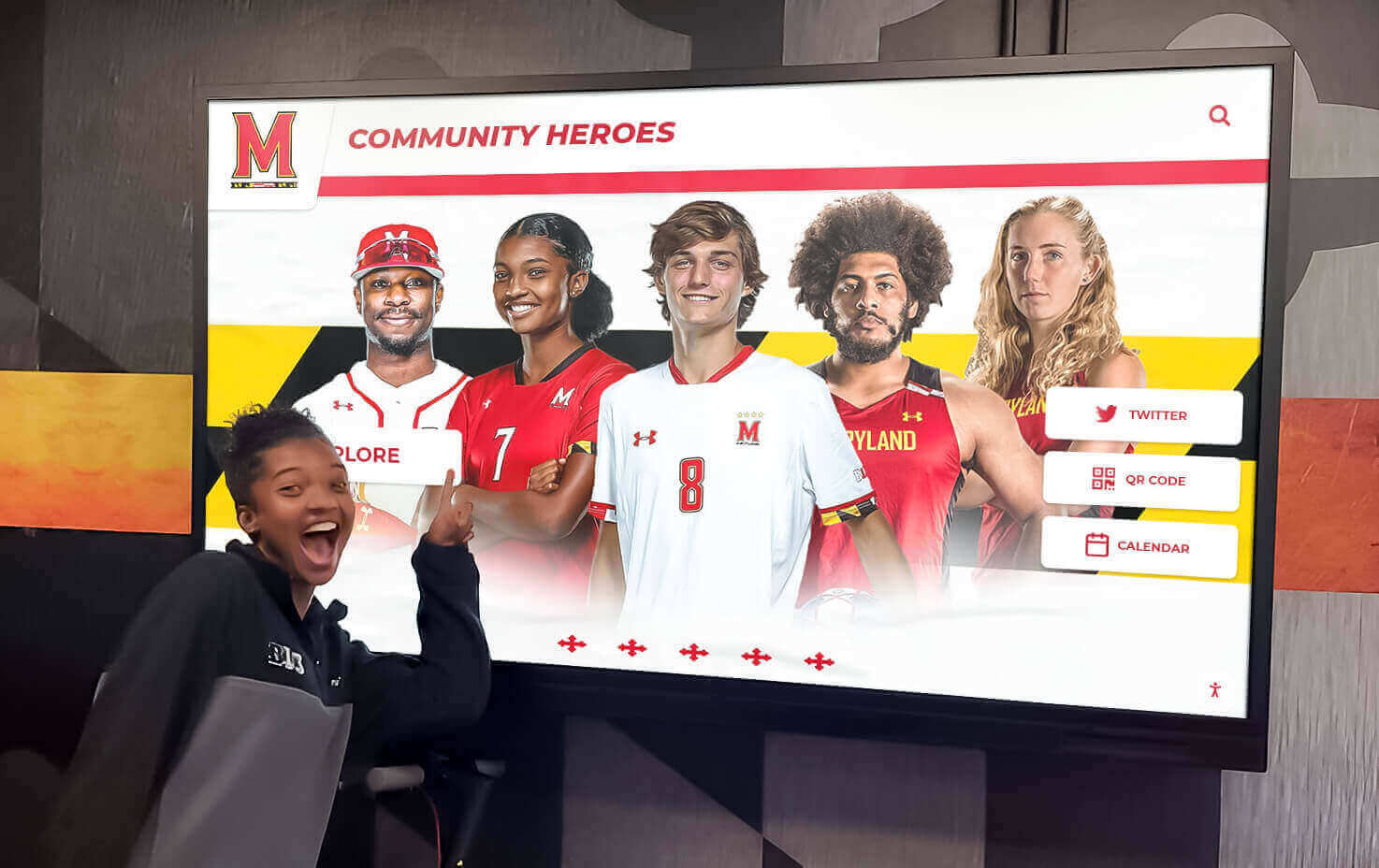
Young athletes draw inspiration from displays showcasing professional athletes from their communities
High School Success: Emerging as an Elite Junior Golfer
Following his decision to concentrate on golf, Fowler’s development accelerated rapidly during his high school years at Murrieta Valley High School. What had been a recreational activity transformed into serious competitive pursuit as he dedicated himself to improving every aspect of his game.
California State Championship: Breakthrough Victory
During his junior year of high school, Fowler captured the California state high school golf championship—a prestigious title in a state known for producing elite golfers. This victory announced him as one of the nation’s top junior players and validated his decision to focus on golf rather than continuing in motocross.
The California high school golf championship attracts competitors from across the state’s hundreds of programs, making the title particularly meaningful. For Fowler, winning demonstrated that his self-taught fundamentals and competitive temperament could translate to success against formally trained golfers from wealthy country club backgrounds.
AJGA All-America Recognition
Fowler’s high school success extended beyond state competition to the national level. He earned American Junior Golf Association (AJGA) All-America selection in both 2005 and 2006, recognizing him among the nation’s elite junior golfers during his final two years of high school.
The AJGA represents the premier competitive circuit for junior golfers in the United States, serving as a proving ground for players who aspire to compete collegiately and professionally. Being named an All-American in this highly competitive environment marked Fowler as a legitimate college recruiting prospect and future professional candidate.
These achievements during his high school years created momentum that would carry into his college career. For high schools that have produced professional athletes, athletic recognition displays provide platforms to honor these accomplished graduates while inspiring current students with examples of achievable excellence emerging from their own programs.
College Career: Cowboy Golf and National Recognition
Rickie Fowler’s college decision would prove crucial to his development as a player and person. He chose Oklahoma State University in Stillwater, Oklahoma—one of college golf’s premier programs with a storied tradition of producing PGA Tour professionals.
Immediate Impact as a Freshman Phenom
Fowler’s impact at Oklahoma State was immediate and unprecedented. As a freshman during the 2007 season, he delivered performances that typically take upperclassmen years to achieve. His exceptional play earned him numerous accolades that announced him as one of college golf’s elite players:
Freshman Season Awards (2007):
- Ben Hogan Award: Presented to the nation’s top collegiate golfer, Fowler became the first freshman ever to win this prestigious honor
- Phil Mickelson Award: Recognizes the nation’s top freshman golfer
- NCAA Player of the Year: Unprecedented recognition for a first-year player
- Two-time All-American: Earned at multiple points during his freshman campaign
These achievements were extraordinary for a freshman. Most college golfers spend their first year adjusting to the increased competition level and away-from-home lifestyle. Fowler instead dominated immediately, demonstrating the maturity and skill that would characterize his later professional career.
World Amateur Number One Ranking
During his college years, Fowler achieved the pinnacle of amateur golf by rising to the world number one amateur ranking. He held this distinction for an impressive 36 weeks across 2007 and 2008—a remarkable accomplishment given the global depth of elite amateur golf.
The world amateur golf ranking considers performance across numerous international competitions, collegiate events, and national championships. Maintaining the number one position for extended periods requires consistent excellence across different courses, formats, and competitive environments. Fowler’s lengthy tenure at the top demonstrated that his success resulted from genuine dominance rather than isolated hot streaks.
Walker Cup Dominance
Fowler represented the United States in the Walker Cup—a biennial amateur team competition between the United States and Great Britain & Ireland that represents one of amateur golf’s most prestigious events. He competed in two Walker Cups, delivering particularly memorable performances in his final amateur appearance.
At the 2009 Walker Cup held at Merion Golf Club in Pennsylvania, Fowler won all four of his matches in dominant fashion, providing crucial points as the United States defeated Great Britain & Ireland by a decisive seven-point margin. This perfect Walker Cup record showcased his ability to perform under pressure in team formats—a skill that would serve him well in future Ryder Cup competitions.
Turning Professional: Leaving College Early
Following the 2009 Walker Cup, Fowler made the decision to turn professional and forgo his remaining collegiate eligibility. This choice—increasingly common among elite college golfers—reflected his confidence that he was ready to compete against the world’s best professionals.
Fowler’s professional debut came at the Albertsons Boise Open on the Nationwide Tour (now Korn Ferry Tour), the PGA Tour’s developmental circuit. This step began his journey through professional golf’s competitive landscape toward establishing himself on the PGA Tour.

Championship displays honor athletic excellence across all competitive levels
Early Professional Career: Rookie Success and Ryder Cup Debut
Rickie Fowler’s transition from amateur star to PGA Tour professional proceeded more smoothly than many observers expected. While most players struggle initially against significantly elevated competition, Fowler demonstrated he belonged among golf’s elite almost immediately.
2010 Rookie Season: Immediate Impact
Fowler earned his PGA Tour card for the 2010 season and quickly proved he could compete at the highest level. His rookie season included multiple impressive finishes that established him as one of the tour’s rising stars:
2010 Season Highlights:
- Multiple top-ten finishes against elite competition
- Consistent performance throughout the season maintaining Tour card status
- Victory in the PGA Tour Rookie of the Year award
- Qualification for season-ending Tour Championship
The Rookie of the Year award recognized Fowler as the top first-year player on Tour—an honor that validated his decision to turn professional and positioned him as a future star. This immediate success demonstrated that his amateur dominance translated effectively to professional competition.
Historic Ryder Cup Selection: Youngest American Ever
The most remarkable achievement of Fowler’s rookie season came with his selection to the 2010 United States Ryder Cup team. At age 21, he became the youngest American player ever selected for the biennial competition against Europe—one of golf’s most pressure-packed events.
The Ryder Cup differs dramatically from typical golf tournaments. Instead of individual stroke play, teams compete in match play formats where players represent their countries in team and individual matches. The passionate crowds, intense pressure, and team dynamics create an atmosphere unlike any other golf event.
2010 Ryder Cup at Celtic Manor, Wales:
- Fowler partnered with various teammates in foursome and four-ball matches
- Delivered clutch performances despite his youth and inexperience
- Demonstrated the competitive temperament and pressure performance that would define his career
- Though Team USA lost to Europe, Fowler’s gutsy play earned respect from teammates and opponents
His Ryder Cup selection as a rookie sent a clear message: Rickie Fowler possessed not just talent but the mental toughness to perform on golf’s biggest stages. For young athletes aspiring to professional careers, student recognition programs help schools celebrate early achievements that build toward professional success.
Building Toward Breakthrough Victory
Following his successful rookie season, Fowler continued developing his game while accumulating close calls in PGA Tour events. Multiple near-misses and high finishes built experience and confidence while demonstrating he possessed the skills needed to win—he just needed to close out a tournament.
First Professional Victory: Breaking Through at Wells Fargo
Every professional golfer remembers their first PGA Tour victory—the moment when years of practice, development, and near-misses culminate in breakthrough success. For Rickie Fowler, this moment arrived in dramatic fashion at the 2012 Wells Fargo Championship.
Wells Fargo Championship Victory (2012)
The 2012 Wells Fargo Championship at Quail Hollow Club in Charlotte, North Carolina, provided the stage for Fowler’s first PGA Tour victory. The path to this victory tested every aspect of his game and competitive character.
After four rounds of stroke play, Fowler found himself tied with two other elite players: D.A. Points and Rory McIlroy, who was already a major championship winner. This meant a sudden-death playoff would determine the winner—exactly the kind of pressure situation that reveals champion mentality.
Playoff Drama:
- All three players returned to the 18th hole for sudden-death
- The first playoff hole concluded with all three players making par, forcing continuation
- On the second playoff hole (18th again), Fowler delivered under maximum pressure
- With the championship on the line, he struck a brilliant approach shot and made birdie
- Both opponents made par, giving Fowler his first PGA Tour victory
This victory accomplished multiple important objectives for Fowler’s career:
- Validated His Talent: Proved he could close tournaments against elite competition
- Defeated Major Champion: Beat Rory McIlroy in direct competition under pressure
- Earned Multiple Season Exemptions: Victory provided tournament entries and scheduling flexibility
- Built Confidence: Demonstrated he possessed the mental toughness to win
The victory celebration revealed Fowler’s genuine joy and appreciation for reaching this milestone. Unlike some players who view first victories as expected outcomes, Fowler clearly savored the moment while recognizing how many talented players never achieve PGA Tour wins.
International Success: Kolon Korea Open
Actually, Fowler’s first professional victory had come earlier at the 2011 Kolon Korea Open, a tournament co-sanctioned by the Korean Tour and OneAsia Tour. This international victory demonstrated his ability to perform in different environments and cultures while building his global profile, particularly in Asia where his Japanese heritage made him popular among fans.
However, PGA Tour victories carry the most weight in American professional golf, making the Wells Fargo Championship his breakthrough moment in the eyes of most golf observers.
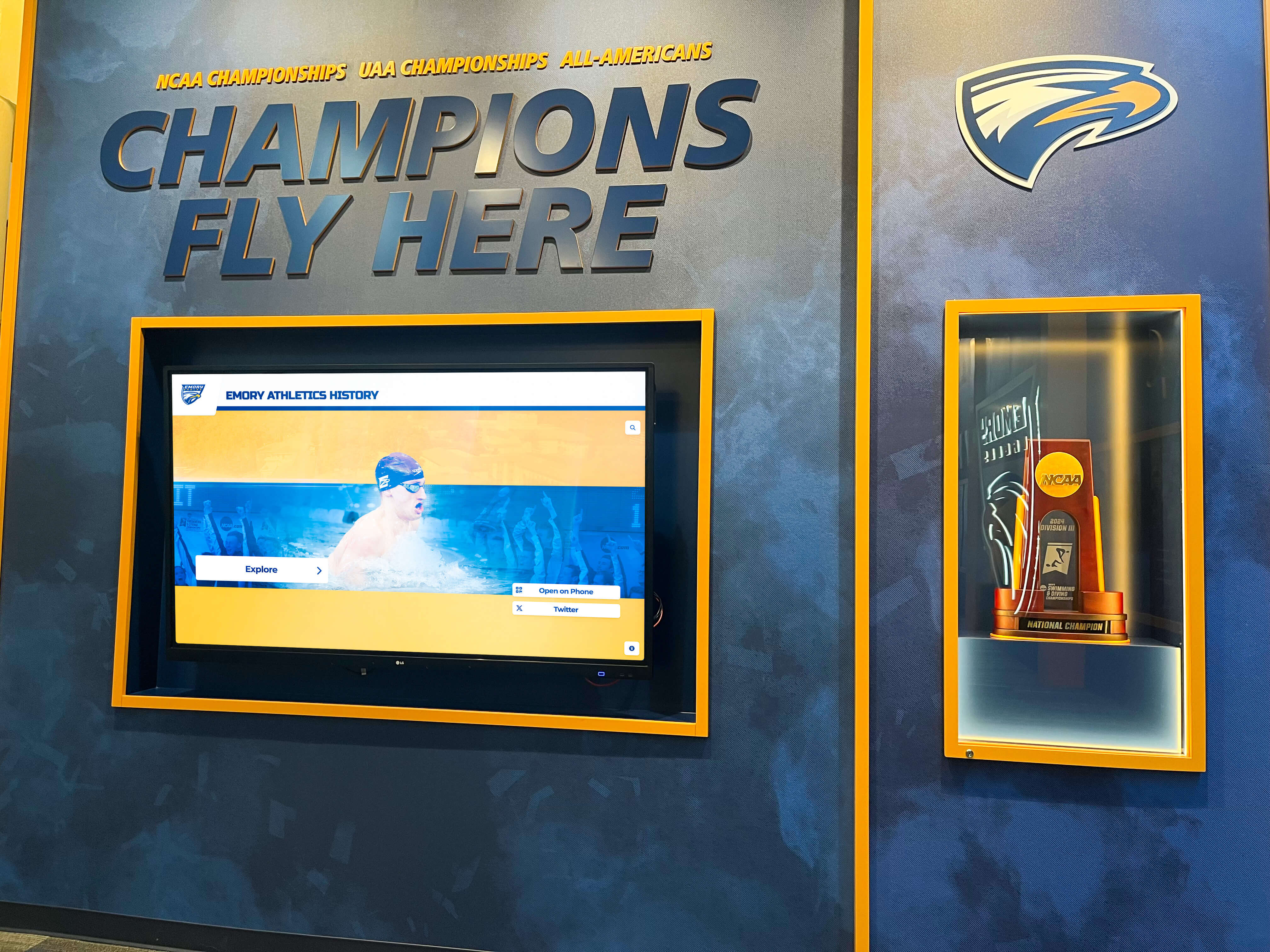
Championship walls celebrate victories and inspire future athletic achievement
The 2014 Season: Historic Major Championship Performances
If Rickie Fowler’s career had ended after 2013, he would be remembered as a solid PGA Tour professional with multiple victories and consistent performance. The 2014 season, however, elevated him to an entirely different level—establishing him as one of golf’s premier players through a historic run in major championships.
The Grand Slam of Near-Misses
The 2014 golf season produced one of the most remarkable individual major championship performances in golf history—remarkable precisely because it didn’t produce a major championship victory. Fowler became only the third player ever (joining Jack Nicklaus and Tiger Woods) to finish in the top five in all four major championships in a single season. Remarkably, he accomplished this feat without winning any of the majors, making him the first player to achieve top-five finishes in all four majors without capturing a title.
2014 Masters Tournament: T-5
The major championship season began at Augusta National Golf Club for the Masters Tournament in April. Fowler played excellent golf throughout the week, positioning himself in contention through steady, strategic play. His fifth-place tie demonstrated his game was sharp and ready for the season’s most important events.
The Masters performance showed Fowler could navigate Augusta National’s unique challenges—the lightning-fast greens, strategic shot placement requirements, and mental pressure of competing at golf’s most prestigious venue. This strong start to the major season built confidence for the challenges ahead.
U.S. Open at Pinehurst: Runner-Up
The U.S. Open, held at historic Pinehurst No. 2 in North Carolina, provided Fowler’s first genuine chance at major championship victory in 2014. He played exceptional golf throughout the week, consistently positioning himself near the leaderboard’s top through careful course management and solid execution.
Fowler finished as runner-up (tied with Erik Compton) at 1-over par, eight strokes behind champion Martin Kaymer, who dominated the field with exceptional ball-striking and putting. While falling short of victory disappointed Fowler, finishing second at a major championship represented significant progress and demonstrated he belonged in conversations about golf’s elite players.
The U.S. Open tests every aspect of a golfer’s game—driving accuracy, iron precision, short game creativity, and mental toughness through difficult conditions. Fowler’s runner-up finish showed he possessed all these qualities even if the ultimate victory eluded him this time.
The Open Championship at Royal Liverpool: Second Place
Just two months after the U.S. Open disappointment, Fowler traveled to Royal Liverpool Golf Club in England for The Open Championship (often called the British Open in the United States). This major championship presents unique challenges—firm, fast conditions, unpredictable weather, pot bunkers, and strategic demands unlike American golf courses.
Once again, Fowler found himself in contention throughout the week, demonstrating his ability to adapt to links golf’s distinctive requirements. He finished in second place, coming tantalizingly close to his first major championship but unable to overcome the eventual champion’s performance.
This second consecutive runner-up finish at a major championship in the same season was unprecedented in Fowler’s career. While any player would prefer victory, these results proved he could compete with anyone in the world under major championship pressure.
PGA Championship: T-3
The major championship season concluded in August at the PGA Championship, where Fowler again positioned himself in contention. His tied-third-place finish completed an unprecedented season of major championship consistency.
By finishing the year with finishes of T-5, T-2, 2nd, and T-3 across the four majors, Fowler accomplished something only two other players (Nicklaus and Woods) had achieved—top-five finishes in all four majors in the same season. The fact that he did so without winning any of them added a bittersweet element to this historic achievement.
Historical Perspective and Aggregate Scoring
Golf statisticians noted that Fowler’s combined score across all four 2014 majors totaled 1,108—matching Phil Mickelson’s 2001 aggregate and representing the third-best combined major championship score in golf history among players who didn’t win a major that year.
This statistical analysis highlighted just how exceptional Fowler’s 2014 major performance was. He played at an elite level throughout the entire major championship season, consistently positioning himself to win while ultimately falling short each time.
For athletic programs recognizing outstanding individual achievements, professional athlete recognition displays provide platforms to celebrate accomplishments that inspire current students while honoring graduates who reached elite competitive levels.
The Weight of Expectations
While the 2014 season established Fowler as a major championship contender, it also created significant expectations for his future. Golf fans, media members, and Fowler himself expected that these near-misses would soon convert to major championship victories. This expectation would prove to be both motivating and burdensome in subsequent seasons.
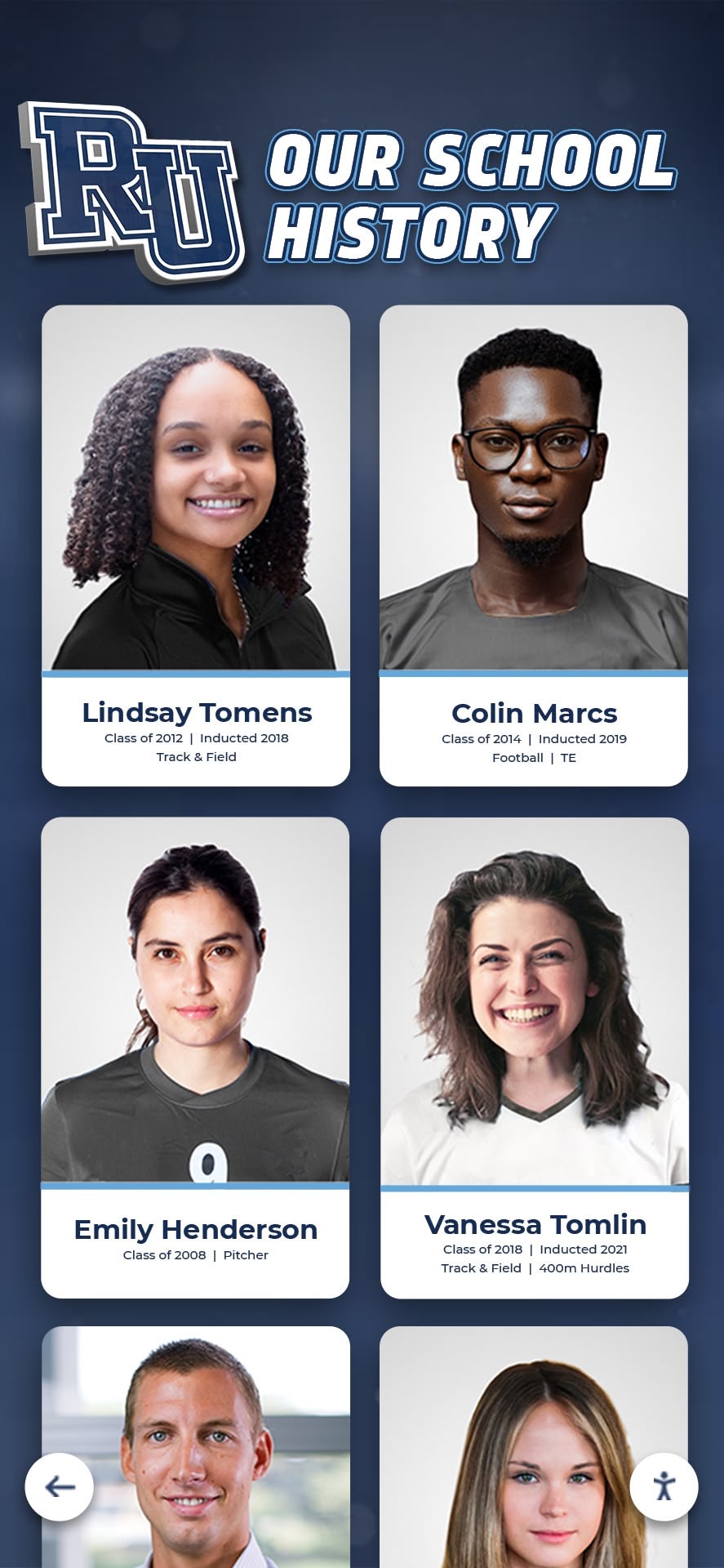
Recognition systems honor professional athletes while inspiring current competitors
Peak Years: The Players Championship and Career-High Ranking
Following the historic 2014 major championship season, Rickie Fowler entered a period where he established himself firmly among golf’s elite players. The 2015 season provided his career’s signature victory and peak world ranking.
The Players Championship Victory (2015)
If Fowler’s career had one defining victory, The Players Championship triumph in May 2015 would be it. Often called golf’s “fifth major,” The Players Championship at TPC Sawgrass in Ponte Vedra Beach, Florida, attracts the strongest fields of any non-major tournament and tests every aspect of golf skill.
The 2015 tournament provided dramatic circumstances that tested Fowler’s mental toughness and competitive will:
Sunday Showdown:
- Fowler entered the final round trailing by five strokes with just six holes remaining
- Most players would consider a five-shot deficit with six holes left insurmountable
- Instead of accepting defeat, Fowler launched an incredible comeback charge
- He played the final six holes in birdie-birdie-eagle-birdie-par-birdie
- This spectacular finish brought him back to tie for the lead
- In the playoff, Fowler defeated Kevin Kisner and Sergio García
- On the second playoff hole, Fowler made birdie while his opponents made par, securing victory
This victory showcased several key Fowler characteristics:
- Never-Give-Up Attitude: Refused to surrender despite seemingly impossible circumstances
- Pressure Performance: Made clutch putts when they mattered most
- Competitive Fire: Raised his game precisely when championship hung in the balance
- Mental Toughness: Maintained belief he could win even when situation appeared hopeless
The Players Championship victory stands as the crowning achievement of Fowler’s career to date—a demonstration of competitive excellence under maximum pressure against the strongest possible field.
Career-High World Ranking
Following his Players Championship victory and additional strong performances, Fowler reached his career-high world golf ranking of number four in January 2016. This ranking positioned him among the genuine elite of professional golf, behind only the sport’s absolute best players.
Reaching the world’s top four represents extraordinary achievement given the global depth of professional golf. Thousands of professional golfers compete worldwide, making the top ten an elite group and the top five rarefied air reserved for only the sport’s very best players.
Abu Dhabi HSBC Golf Championship (2016)
The victory that propelled Fowler to his career-high ranking came at the Abu Dhabi HSBC Golf Championship in January 2016. This European Tour event in the United Arab Emirates featured a strong international field and provided Fowler his first European Tour victory.
Winning on the European Tour demonstrated Fowler’s ability to perform globally rather than just on American soil. This international versatility marks elite players who can adapt to different grasses, course styles, and competitive environments worldwide.
Continued Success and Multiple Victories
The 2015-2017 period represented Fowler’s peak years, during which he accumulated multiple PGA Tour victories, contended regularly in major championships, and maintained his position among golf’s elite players. While the elusive major championship victory never came, he remained consistently competitive at the highest level.
Schools and athletic programs that have produced professional athletes use championship recognition displays to celebrate these accomplishments while inspiring current students with tangible examples of athletic excellence emerging from their programs.
The Drought: Struggles and Rankings Decline
Professional golf careers rarely follow straight upward trajectories. Following his peak years in 2015-2016, Rickie Fowler entered a challenging period that tested his character, work ethic, and mental resilience in ways that early success never had.
Victory Drought Begins
After winning the Phoenix Open in February 2019, Fowler entered an extended winless drought that would last over four years. This dry spell represented far more than simple bad luck—it reflected genuine struggles with various aspects of his game that prevented him from competing at his previous elite level.
The drought was particularly challenging because it followed years of consistent success. Players who suddenly lose form after establishing elite status often struggle more than those who never reached the pinnacle—the psychological burden of trying to recapture previous heights while dealing with mounting frustration and doubt can be overwhelming.
World Ranking Freefall
Perhaps the most visible evidence of Fowler’s struggles came through his plummeting world golf ranking. From his career-high ranking of number four in January 2016, Fowler fell precipitously:
Ranking Decline:
- 2016: World number 4
- 2017-2018: Maintained top-10 status with occasional drops
- 2019-2020: Gradual decline outside top 20
- 2021-2022: Fell outside top 100
- Summer 2022: Dropped outside world’s top 150 players
Falling from the world’s top four to outside the top 150 represented a dramatic reversal rarely seen among players of Fowler’s caliber and experience. The decline indicated serious performance issues rather than temporary slumps or injury-related problems.
Multiple Swing Changes and Technical Adjustments
Like many players struggling to recapture form, Fowler experimented with numerous technical changes attempting to rediscover the swing mechanics that had produced success earlier in his career. These adjustments included:
- Swing coach changes: Working with different instructors seeking fresh perspectives
- Technical modifications: Altering grip, stance, swing plane, and other mechanical elements
- Equipment changes: Testing different clubs, shafts, and balls
- Practice regimen adjustments: Modifying preparation routines and training approaches
Unfortunately, these changes often created additional confusion rather than solutions. Golf’s technical complexity means that adjustments to one aspect of the swing can create unexpected problems elsewhere, leading to cycles of constant tinkering that prevent consistency.
Mental and Confidence Challenges
Beyond technical struggles, Fowler faced the mental challenges that accompany extended poor performance. Confidence—golf’s most important but fragile commodity—eroded with each missed cut and disappointing result. The mental game issues included:
- Loss of Automatic Execution: Movements that once felt natural required conscious thought
- Pressure Amplification: Situations that previously felt routine became pressure-packed
- Overthinking: Mental paralysis from analyzing every swing element
- Doubt and Negativity: Questioning abilities and decisions in ways that never occurred during successful periods
These mental struggles can be more difficult to overcome than technical issues because they create vicious cycles—poor performance breeds doubt, which causes tentative execution, leading to more poor performance.
Media Scrutiny and Public Pressure
As one of golf’s most popular and visible players, Fowler’s struggles attracted significant media attention and public commentary. Every tournament appearance generated questions about when he would return to form, whether his career was effectively over, and what had gone wrong.
While this attention came from genuine concern and hope for his return to success, it added pressure to an already challenging situation. The constant public discussion of his problems made it impossible to work through issues quietly without external pressure and expectations.
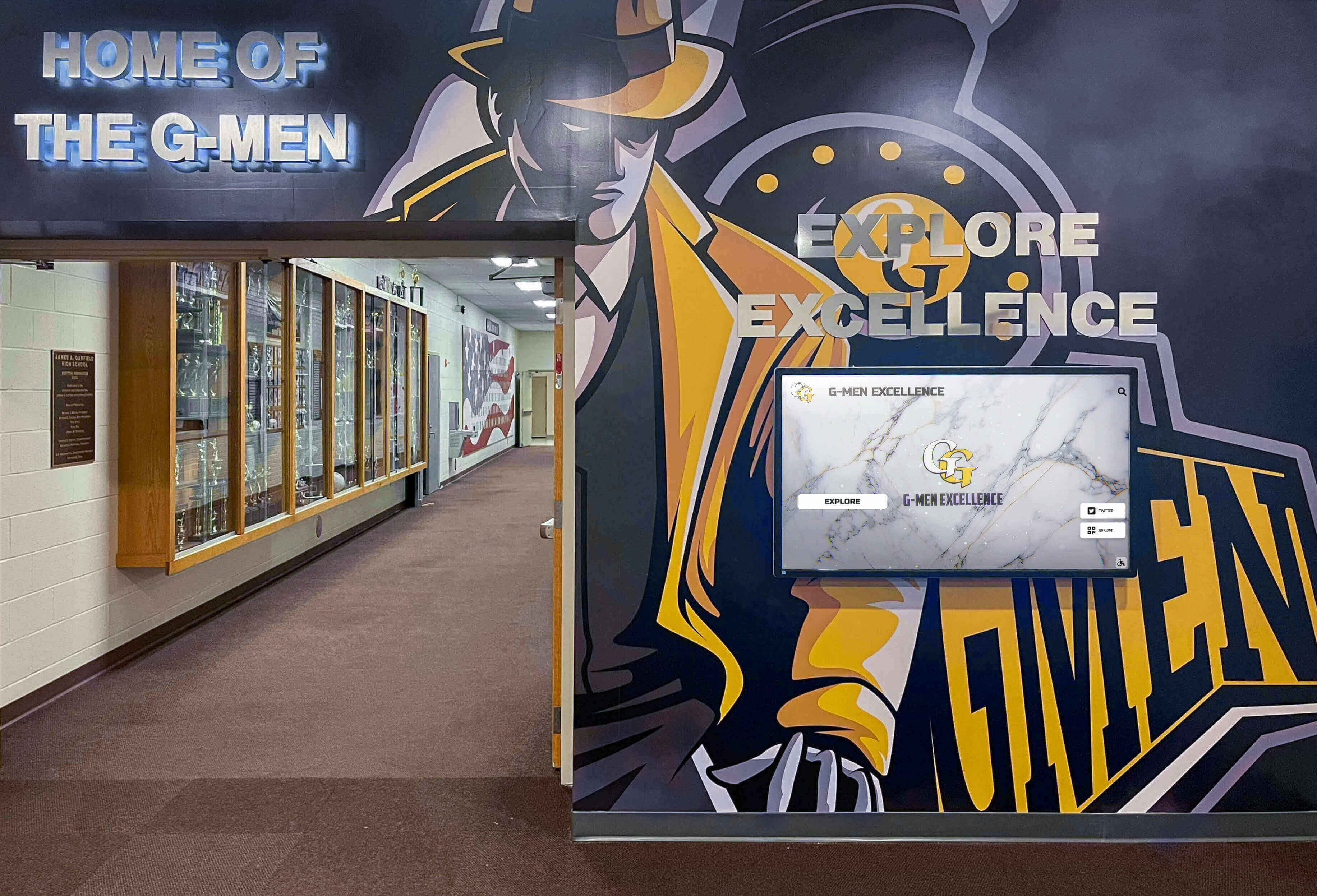
Athletic recognition systems inspire current athletes through stories of overcoming challenges
The Return: 2023 Comeback and Rocket Mortgage Classic Victory
After years in the wilderness of professional golf’s competitive landscape, Rickie Fowler’s 2023 season provided one of the sport’s most heartwarming comeback stories. His journey back to victory demonstrated the resilience, work ethic, and competitive spirit that define great athletes.
Returning to Butch Harmon
A crucial element in Fowler’s comeback involved returning to his former swing coach, Butch Harmon. Harmon, one of golf’s most respected instructors, had previously worked with Fowler during some of his most successful periods. The decision to return to a coach who understood his swing represented a commitment to stability rather than continued experimentation.
Harmon’s approach focused on simplifying Fowler’s swing mechanics, eliminating unnecessary movements that had crept in during his struggles, and rebuilding the fundamentals that had produced success earlier in his career. This back-to-basics philosophy proved crucial to Fowler’s return to form.
2023 Season: Signs of Revival
The 2023 season showed clear evidence that Fowler’s dedicated work was producing results. Rather than isolated good rounds followed by poor performance, he demonstrated sustained excellence across multiple tournaments:
2023 Season Performance:
- Eight top-10 finishes in 20 starts
- Fourteen top-25 finishes
- Tied fifth at the U.S. Open at Los Angeles Country Club
- Shot 62 in the third round of the U.S. Open—one of just three 62s ever recorded in major championships
- Didn’t finish outside the top 15 from mid-May through July
- Rose steadily in world rankings as performances improved
These consistent results showed this wasn’t a temporary hot streak but genuine return to elite form. The U.S. Open performance particularly encouraged Fowler and his supporters—contending at a major championship demonstrated he belonged among golf’s best competitors once again.
Rocket Mortgage Classic: Ending the Drought
The 2023 Rocket Mortgage Classic in Detroit provided the stage for Fowler’s emotional return to the winner’s circle. After 1,610 days (four years, four months, and 29 days) since his previous victory, Fowler captured his sixth PGA Tour title in dramatic fashion.
Sunday Drama at Detroit Golf Club:
- Fowler entered the final round with a chance to win
- Posted a solid final round to finish at 24-under par for the tournament
- Tied with Collin Morikawa and Adam Hadwin, forcing a playoff
- All three players made par on the 18th hole in the first playoff round
- Returned to the 18th tee for the second playoff hole
- Fowler hit excellent drives and approaches under maximum pressure
- Made a clutch birdie putt from 11 yards to win the tournament
- Defeated Morikawa and Hadwin as both players made par
The Emotional Victory Celebration
Fowler’s victory celebration revealed the emotional weight of his four-year drought and comeback journey. Unlike routine victories, this win clearly meant everything to a player who had questioned whether he would ever win again on the PGA Tour.
The triumph delivered multiple significant benefits:
- Validated Comeback Work: Proved his dedication and changes were producing results
- Restored Confidence: Demonstrated he could still win against elite competition
- Secured Tournament Status: Victory provided exemptions and scheduling flexibility
- Improved World Ranking: Rose to world number 23 with the win
- Silenced Critics: Answered questions about whether his best days were behind him
Historical Comeback Context
Fowler’s comeback joined a select group of professional golfers who returned to victory after extended droughts and significant struggles. These comeback stories resonate with athletes at all levels because they demonstrate that setbacks, struggles, and doubt can be overcome through dedication, adjustment, and perseverance.
For schools honoring professional athletes who emerged from their programs, athletic recruiting displays can showcase complete career arcs—including struggles and comebacks—providing current athletes with realistic, inspiring examples of professional athletic careers.
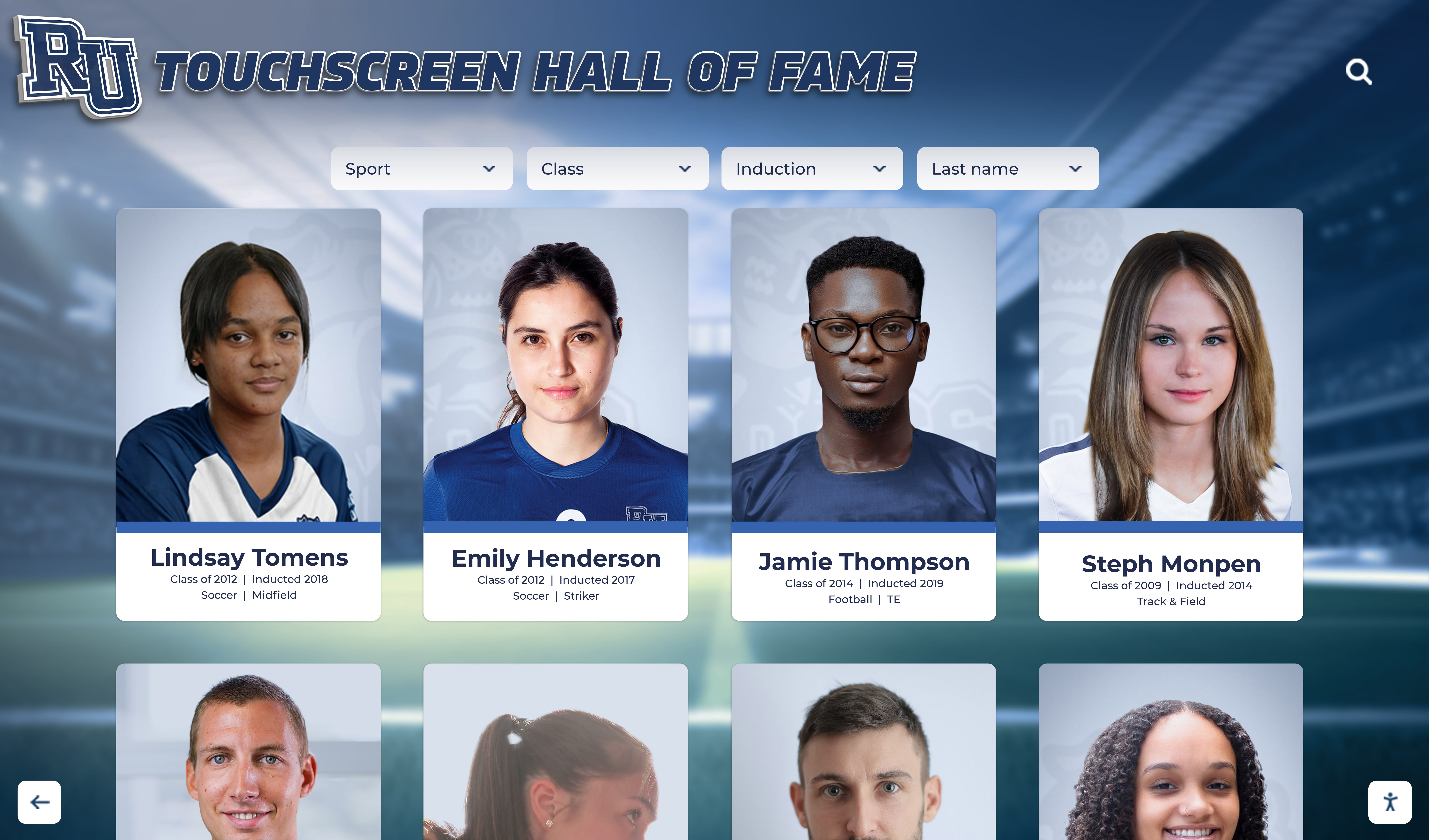
Interactive displays present complete athlete biographies including career challenges and triumphs
Playing Style and Personality: The Complete Package
Beyond statistics and tournament results, Rickie Fowler’s appeal to golf fans worldwide stems from his distinctive playing style, personality, and approach to professional golf that differentiate him from many contemporary players.
Signature Orange: Building a Brand
Fowler’s most visible trademark involves his signature orange clothing on Sundays. This distinctive color choice—worn on final rounds throughout his career—created immediate visual recognition and brand identity that set him apart from competitors.
The orange tradition originated at Oklahoma State University, where Fowler wore the school’s orange colors with pride. Rather than abandoning this connection after turning professional, he embraced it, creating continuity between his amateur and professional careers while honoring his college experience.
This branding proved commercially brilliant. Golf fans can immediately identify Fowler in final-round coverage, creating stronger connections than players who wear generic sponsor colors. The orange attire became synonymous with Fowler himself—demonstrating how athletes can build distinctive identities beyond pure performance.
Flat-Brim Cap: Style Statement
Another distinctive Fowler trademark involves his flat-brimmed golf cap worn low and straight rather than traditionally curved. This style choice—more commonly associated with baseball players and casual streetwear—brought contemporary fashion sensibility to golf’s traditionally conservative aesthetic.
Younger fans particularly connected with this style choice, seeing Fowler as someone who looked more like them than like traditional country club golfers. This relatability factor contributed significantly to his popularity among demographics that might not otherwise follow professional golf closely.
Approachable Personality and Fan Connection
Unlike some elite athletes who maintain emotional distance from fans and media, Fowler has consistently demonstrated approachability, humility, and genuine appreciation for fan support throughout his career. This personality manifests in multiple ways:
Fan-Friendly Characteristics:
- Signs autographs extensively at tournaments
- Engages positively with fans rather than isolating himself
- Shows genuine appreciation for support during difficult periods
- Maintains humility despite fame and success
- Relates comfortably to people from all backgrounds
- Uses social media to connect with fans authentically
This approachability makes Fowler one of golf’s most popular players despite not having won major championships. Fans root for him not just because of his talent but because they genuinely like him as a person.
Aggressive But Strategic Playing Style
On the golf course, Fowler’s playing style combines controlled aggression with strategic thinking. He’s not a bomb-and-gouge player who overwhelms courses with pure distance, nor is he an ultra-conservative player who avoids risk. Instead, he blends both approaches depending on situation and conditions:
Playing Style Elements:
- Solid all-around game without dramatic weaknesses
- Excellent iron play and approach shot accuracy
- Creative short game with multiple shot options
- Good rather than exceptional driving distance
- Strategic course management and decision-making
- Ability to manufacture shots in difficult situations
- Competitive fire that elevates performance under pressure
This balanced approach makes Fowler effective on various course types and conditions rather than being specialized for specific setups.
Motocross Influence: Fearlessness and Risk Management
Fowler’s early motocross background influenced his golf game and competitive approach in subtle but significant ways. The fearlessness required for dirt bike racing translated to golf through his willingness to attempt difficult shots and aggressive plays that more conservative players avoid.
However, his motocross experience also taught sophisticated risk management—racers must constantly evaluate when pushing limits produces gains versus when it creates unnecessary danger. This balance between aggression and calculation characterizes Fowler’s best golf.
Major Championships: The Unfinished Business
Despite Rickie Fowler’s numerous accomplishments—PGA Tour victories, Players Championship triumph, career-high world ranking, and comeback success—one significant gap remains on his professional resume: a major championship victory.
So Close Yet So Far
Fowler’s major championship record combines tantalizing near-misses with frustrating inability to close the deal when positioned to win. His best major finishes include:
Major Championship Record:
- Masters: 2nd (2018), multiple top-10s
- U.S. Open: T-2nd (2014), T-5th (2023)
- Open Championship: 2nd (2014)
- PGA Championship: T-3rd (2014)
These results demonstrate clearly that Fowler possesses the talent and mental toughness to contend in majors. Yet somehow, victory has consistently eluded him when opportunities arose.
The 2018 Masters: Heartbreak at Augusta
Perhaps Fowler’s most disappointing major championship near-miss came at the 2018 Masters. He played exceptional golf throughout the week, positioning himself to win Augusta National’s coveted Green Jacket.
On Sunday’s back nine, Fowler remained in contention for the championship, needing to make birdies on the closing holes to pressure the leaders. Despite hitting quality shots and creating opportunities, the crucial putts didn’t fall. He finished second, so close to major championship glory yet still empty-handed.
This Augusta near-miss particularly stung because the Masters represents golf’s most prestigious major championship. Winning a Green Jacket would have cemented Fowler’s legacy and silenced questions about his ability to win golf’s biggest events.
The Psychological Burden
Each near-miss in major championships creates additional psychological weight for subsequent opportunities. Players in Fowler’s situation face mounting pressure as years pass without major victories—media questions increase, self-doubt creeps in, and the burden of expectations grows heavier.
This pressure can create counterproductive effects. Instead of playing freely and aggressively as they did when younger and unburdened by expectation, players sometimes become tentative and overthink situations. Breaking this cycle requires either pure performance excellence that overcomes mental obstacles or a conscious mental shift that releases attachment to outcomes.
Historical Company: Great Players Without Majors
If Fowler’s career ended tomorrow without major championship victory, he would join a distinguished group of excellent professional golfers who never won majors: players like Colin Montgomerie, Lee Westwood, and Matt Kuchar. These players had exceptional careers, earned millions in prize money, and won prestigious tournaments—they simply never captured golf’s ultimate prizes.
While no competitor wants to be remembered as someone who couldn’t win the big one, there’s no shame in such company. Professional golf’s competitive depth means that winning even one major championship requires exceptional skill combined with timing, luck, and circumstances aligning perfectly during a single week.
Hope Remains
At 36 years old as of 2025, Fowler still has reasonable years remaining in his competitive prime. His 2023 comeback demonstrated he can return to elite form after struggles. Major championship opportunities continue arising four times annually, and Fowler has proven he can contend when playing his best golf.
Many great players—including Phil Mickelson, Sergio García, and others—captured their first major championships in their 30s after years of frustration. Fowler’s story could still have this triumphant chapter if he continues playing at the level he demonstrated in his 2023 return to form.
For athletic programs celebrating successful athletes, recognizing famous alumni involves honoring complete careers rather than judging achievement solely by championship counts—acknowledging that sustained excellence at elite levels represents remarkable accomplishment regardless of whether the sport’s ultimate prizes were captured.
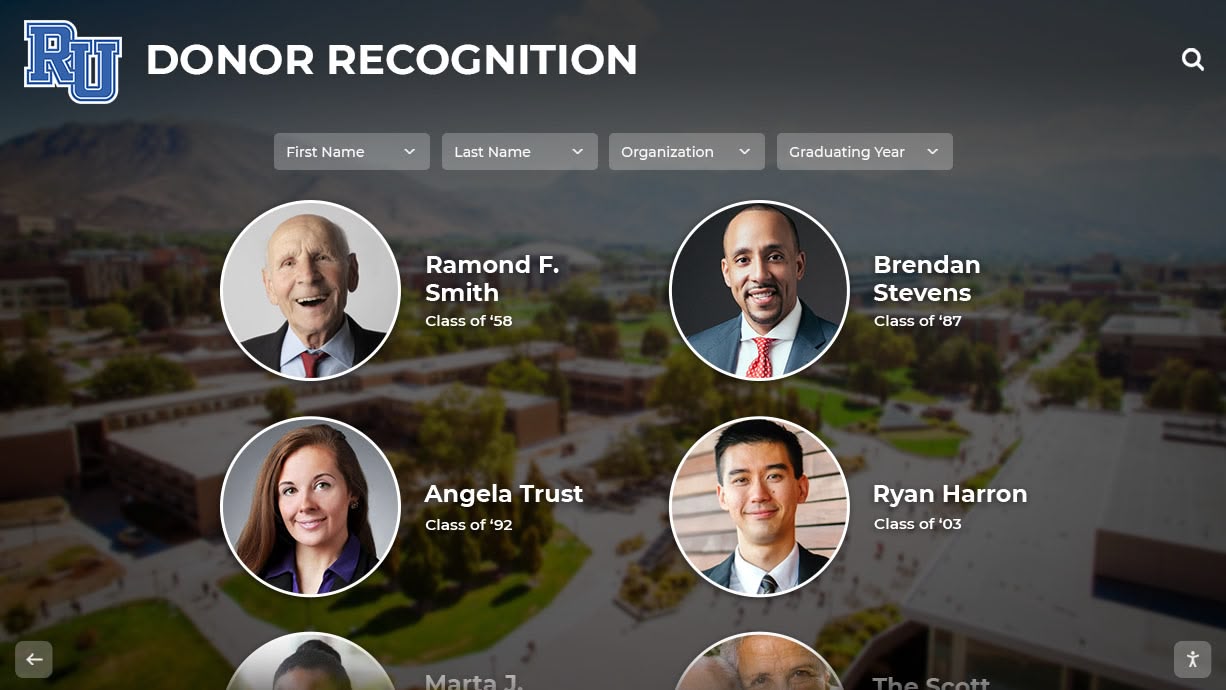
Recognition displays honor professional athletes with complete career narratives
Impact Beyond Golf: Endorsements, Popularity, and Influence
Rickie Fowler’s influence extends well beyond his on-course performance through endorsements, charitable work, and impact on golf’s cultural landscape—demonstrating how modern professional athletes build multifaceted careers and legacies.
Commercial Endorsements and Business Ventures
Fowler’s marketability—driven by his distinctive style, engaging personality, and broad appeal—has made him one of golf’s most valuable commercial properties. His endorsement portfolio has included major brands across multiple industries:
Notable Sponsorship Relationships:
- Puma Golf (apparel and footwear)
- Cobra Golf (clubs and equipment)
- TaylorMade (previously for clubs)
- Rolex (luxury timepieces)
- Farmers Insurance
- Various other commercial partnerships
These endorsement relationships have generated substantial income beyond tournament winnings, ensuring financial security even during performance slumps. The partnerships also demonstrate that commercial value in professional sports depends on multiple factors beyond pure on-course success—personality, appearance, fan connection, and brand fit matter significantly.
Introducing Golf to New Audiences
One of Fowler’s most valuable contributions to professional golf involves attracting younger, more diverse audiences to a sport traditionally associated with older, wealthy, predominantly white demographics. His style, personality, and approach resonated with people who might not otherwise follow golf closely.
This audience expansion benefits the entire sport—television networks, sponsors, tournament organizers, and other players all benefit from golf’s growing popularity among younger demographics. Fowler deserves significant credit for helping modernize golf’s image and making it more accessible and relevant to contemporary audiences.
Charitable Work and Community Involvement
Beyond commercial activities, Fowler has maintained involvement in various charitable causes and community programs throughout his career. While less publicly visible than his competitive golf, this philanthropic work represents important contribution to communities and causes he supports.
Many professional athletes establish foundations or support specific causes, using their platform and resources to create positive impact beyond their sport. Fowler’s charitable activities reflect values instilled during his upbringing and maintained throughout his professional success.
Role Model Status for Young Golfers
Perhaps Fowler’s most important impact involves inspiring young golfers who see in him a relatable figure they can emulate. Unlike distant, aloof superstars, Fowler represents what dedicated work, positive attitude, and resilience can achieve—making success feel attainable rather than impossibly distant.
Young golfers studying his swing, copying his style, and following his career learn valuable lessons beyond golf technique: the importance of perseverance through setbacks, maintaining character during struggles, treating people respectfully regardless of circumstances, and pursuing excellence while maintaining balanced perspective.
Schools and athletic programs recognize this inspirational impact through student recognition programs that celebrate professional athletes from their communities, creating connections between current students and accomplished graduates who demonstrate achievable pathways to athletic success.
Lessons from Rickie Fowler’s Career Journey
Rickie Fowler’s professional golf career—with its triumphs, struggles, and comeback success—provides valuable lessons applicable to athletes at all levels and in all sports. His journey illustrates principles that extend well beyond golf.
Lesson 1: Early Success Doesn’t Guarantee Sustained Excellence
Fowler’s immediate professional success as a rookie created expectations that his career would follow a straight upward trajectory. Instead, he experienced significant struggles after years of consistent excellence, demonstrating that early success doesn’t automatically translate to permanent elite status.
Application for Young Athletes:
- Appreciate success when it comes but don’t assume it’s permanent
- Continue working to improve even when experiencing success
- Understand that all athletes face challenges and setbacks eventually
- Early success creates foundation but doesn’t guarantee future achievement
Lesson 2: Comeback Requires Commitment and Patience
Fowler’s four-year winless drought could have ended his competitive career if he had given up. Instead, his commitment to improvement, willingness to return to fundamentals, and patience through the rebuilding process enabled his eventual comeback.
Application for Young Athletes:
- Setbacks are temporary if you commit to improvement
- Sometimes returning to basics proves more effective than constant experimentation
- Trust the process even when immediate results don’t appear
- Patience and persistence overcome most obstacles eventually
Lesson 3: Style and Personality Matter in Building Careers
Fowler’s distinctive style, engaging personality, and fan-friendly approach created commercial opportunities and maintained popularity even during performance struggles. These qualities ensured career longevity beyond pure competitive success.
Application for Young Athletes:
- Develop authentic personal brand that distinguishes you from competitors
- Treat fans, media, and others with respect and appreciation
- Understand that athletic careers involve more than just performance
- Build relationships and reputation that support long-term success
Lesson 4: Mental Toughness Defines Championship Performance
Throughout his career, Fowler demonstrated exceptional mental toughness—from his Ryder Cup performances to The Players Championship comeback to his 2023 victory after years of struggle. This mental strength often separated him from less resilient competitors.
Application for Young Athletes:
- Develop mental skills as intentionally as physical capabilities
- Learn to perform under pressure rather than avoiding challenging situations
- Maintain belief in yourself even when results don’t validate that belief
- Mental toughness can be trained and improved like any other skill
Lesson 5: Perspective and Balance Support Long-Term Success
Despite struggles and disappointments, Fowler maintained perspective about golf being his profession rather than his entire identity. This balanced approach likely helped him navigate difficult periods without losing himself in competitive failures.
Application for Young Athletes:
- Develop identity beyond athletic performance alone
- Maintain interests, relationships, and activities outside sports
- Understand that athletic careers end eventually but life continues
- Balanced perspective supports both performance and life satisfaction
For schools honoring professional athletes who emerged from their programs, solutions like Rocket Alumni Solutions provide comprehensive platforms to share complete career stories—including challenges and lessons—that inspire current students with realistic examples of professional athletic journeys.

Modern recognition systems enable detailed athlete profiles that share complete career journeys
Honoring Professional Athletes: Recognition Programs That Inspire
High schools, colleges, and communities that have produced professional athletes like Rickie Fowler face important questions about how to properly honor these accomplished graduates while leveraging their success to inspire current students and strengthen institutional pride.
Traditional Recognition Challenges
Traditional athletic recognition approaches—static plaques, trophy cases, and wall displays—face significant limitations when honoring professional athletes:
Traditional Method Limitations:
- Limited physical space restricts how many athletes can be recognized
- Static displays can’t be easily updated as careers progress
- Photos and text provide minimal information about complete careers
- Young students may not engage with traditional, museum-like displays
- Updates require expensive physical fabrication and installation
These limitations mean many accomplished professional athletes receive inadequate recognition or no recognition at all as space fills with newer achievements and physical updates become cost-prohibitive.
Digital Recognition: Comprehensive, Engaging Solutions
Modern digital recognition systems solve traditional limitations while creating more engaging, comprehensive platforms for honoring professional athletes. Solutions like those from Rocket Alumni Solutions provide purpose-built platforms specifically designed for athletic recognition:
Digital Recognition Advantages:
Unlimited Recognition Capacity
- Showcase hundreds of professional athletes without space constraints
- Include complete career information rather than basic biographical data
- Add new athletes or update existing profiles instantly without physical modification
Rich Multimedia Content
- Include photos from high school, college, and professional careers
- Embed video highlights of professional performances
- Add career statistics, achievements, and timeline information
- Include quotes, interviews, and personal messages from athletes
Interactive Engagement
- Students can search by sport, graduation year, professional league, or name
- Filter to find athletes in sports they play or leagues they follow
- Explore complete career progressions from high school through professional ranks
- Share athlete profiles on social media platforms
Easy Updates and Maintenance
- Add new professional athletes as they emerge from programs
- Update existing profiles as careers progress
- Include current season statistics and recent achievements
- Maintain currency without physical reinstallation
Dual-Purpose Platforms
- Same content powers physical displays in school facilities
- Online directories provide access from anywhere globally
- Mobile-responsive design works on all devices
- Alumni can view their profiles and share with networks
Strategic Placement Maximizes Impact
Digital recognition displays should be positioned where they receive maximum student exposure and generate greatest inspirational impact:
Optimal Location Strategies:
- Main lobbies where students pass daily
- Athletic facility entrances and locker room areas
- Cafeterias where students gather during breaks
- Library entrances and common study areas
- Hallways connecting academic and athletic facilities
Strategic placement ensures students regularly encounter displays during normal activities rather than requiring special visits to view recognition, maximizing inspirational exposure and engagement opportunities.
Connecting Past Achievement to Current Aspiration
The most effective professional athlete recognition programs create explicit connections between past graduates’ accomplishments and current students’ aspirations. This involves:
Connection Strategies:
- Highlight athletes’ high school statistics alongside professional achievements
- Show career progressions from high school through college to professional ranks
- Include information about dedication, training, and development required
- Feature quotes about the role high school experiences played in later success
- Create mentorship opportunities connecting professional athletes with current students
These connections help current athletes see professional careers as achievable outcomes of dedication and excellence rather than impossible dreams reserved for genetic freaks or impossibly talented outliers.
Inspiring Multiple Pathways to Success
Not every high school athlete will reach professional ranks—in fact, very few will. However, recognition displays can honor multiple success types that inspire students pursuing various paths:
Recognition Categories:
- Professional athletes competing at elite levels
- College athletes competing on scholarships
- Coaches who competed as high school athletes
- Professionals who use athletic skills in careers (trainers, physical therapists, sports media)
- Community leaders who credit athletics with developing important life skills
This inclusive approach ensures all students—not just the most elite athletic talents—can find relevant inspiration and examples in recognition programs.
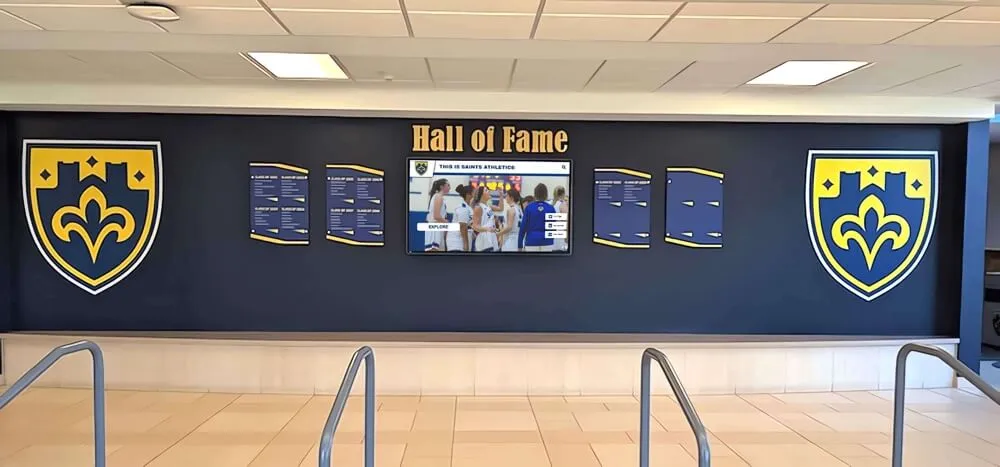
Comprehensive recognition displays honor diverse athletic achievements and career paths
Conclusion: The Ongoing Journey of Rickie Fowler
Rickie Fowler’s golf career represents a compelling narrative still being written—a journey that includes early prodigy status, immediate professional success, historic major championship performances, frustrating struggles, emotional comeback triumphs, and unfinished business regarding the major championships that have eluded him.
A Career Defined by Resilience
More than any specific victory or achievement, Fowler’s career will be remembered for remarkable resilience. The ability to fall outside the world’s top 150 players after reaching number four, then dedicate himself to the difficult work of rebuilding rather than accepting decline, demonstrates competitive character that transcends golf statistics.
This resilience resonates with athletes at all levels because everyone faces setbacks, struggles, and periods when success seems impossible. Fowler’s journey provides tangible evidence that dedicated work, proper adjustments, and unwavering belief can overcome even extended challenges that appear insurmountable.
The Unfinished Chapter: Major Championship Quest
As Fowler’s career continues, the major championship question remains his most compelling storyline. Will he finally capture the title that has consistently eluded him? Will his 2014 near-misses and 2018 Masters runner-up finish remain his closest approaches? Or will he author a triumphant major championship victory that completes his career narrative?
The answer remains unknown—and that uncertainty makes Fowler’s continuing career compelling. Golf fans hope to witness that breakthrough moment when everything aligns and Fowler finally achieves the major championship success his talent and dedication deserve.
Impact Beyond Victory Totals
Regardless of whether major championship victory eventually comes, Fowler’s career impact extends well beyond tournament results. His influence on golf’s cultural landscape, appeal to younger audiences, distinctive personal brand, and role model status for aspiring golfers represent achievements that don’t appear in statistical records but matter significantly to the sport’s health and future.
He demonstrated that professional golf careers can be built on consistent excellence, engaging personality, and authentic character rather than requiring major championship victories to maintain relevance and create lasting impact.
Inspiration for Future Generations
Young golfers studying Fowler’s career can learn valuable lessons applicable well beyond golf:
- Pursue excellence with dedication while maintaining perspective and balance
- Develop distinctive personal brand that authentically reflects who you are
- Treat people with respect and appreciation regardless of circumstances
- Persist through setbacks and struggles that seem overwhelming
- Understand that careers include ups and downs requiring constant adaptation
- Maintain belief in yourself even when external evidence doesn’t support that belief
- Contribute to your sport and community beyond pure competitive performance
These lessons—more than any specific tournament victory—represent Fowler’s most valuable contribution to golf and athletics more broadly.
Honor Your Program's Professional Athletes
Discover how modern digital recognition displays can help your school or athletic program celebrate professional athletes who emerged from your programs, inspiring current students while strengthening community pride and institutional tradition.
Explore Recognition SolutionsThe Story Continues
As Rickie Fowler continues his professional golf career, new chapters await. His 2023 comeback victory demonstrated that elite performance remains within reach. The major championship quest continues providing compelling motivation. And his influence on golf’s cultural landscape and next generation of players continues growing.
Whatever the future holds—major championship breakthrough, additional PGA Tour victories, Ryder Cup appearances, or eventual transition to other roles within professional golf—Fowler has already secured his place as one of his generation’s most compelling and influential professional golfers.
His journey from California motocross enthusiast to world number one amateur to PGA Tour champion to struggling professional to comeback winner provides inspiration for athletes everywhere facing their own challenges, pursuing their own dreams, and writing their own ongoing stories of competitive pursuit and personal growth.
For schools and athletic programs honoring professional athletes who emerged from their institutions, Fowler’s complete career arc—including the struggles and setbacks alongside the triumphs—provides exactly the kind of authentic, inspiring narrative that resonates with current students navigating their own athletic journeys. Learn more about comprehensive professional athlete recognition systems designed to celebrate complete career stories that inspire while honoring accomplished graduates who reached professional ranks.































